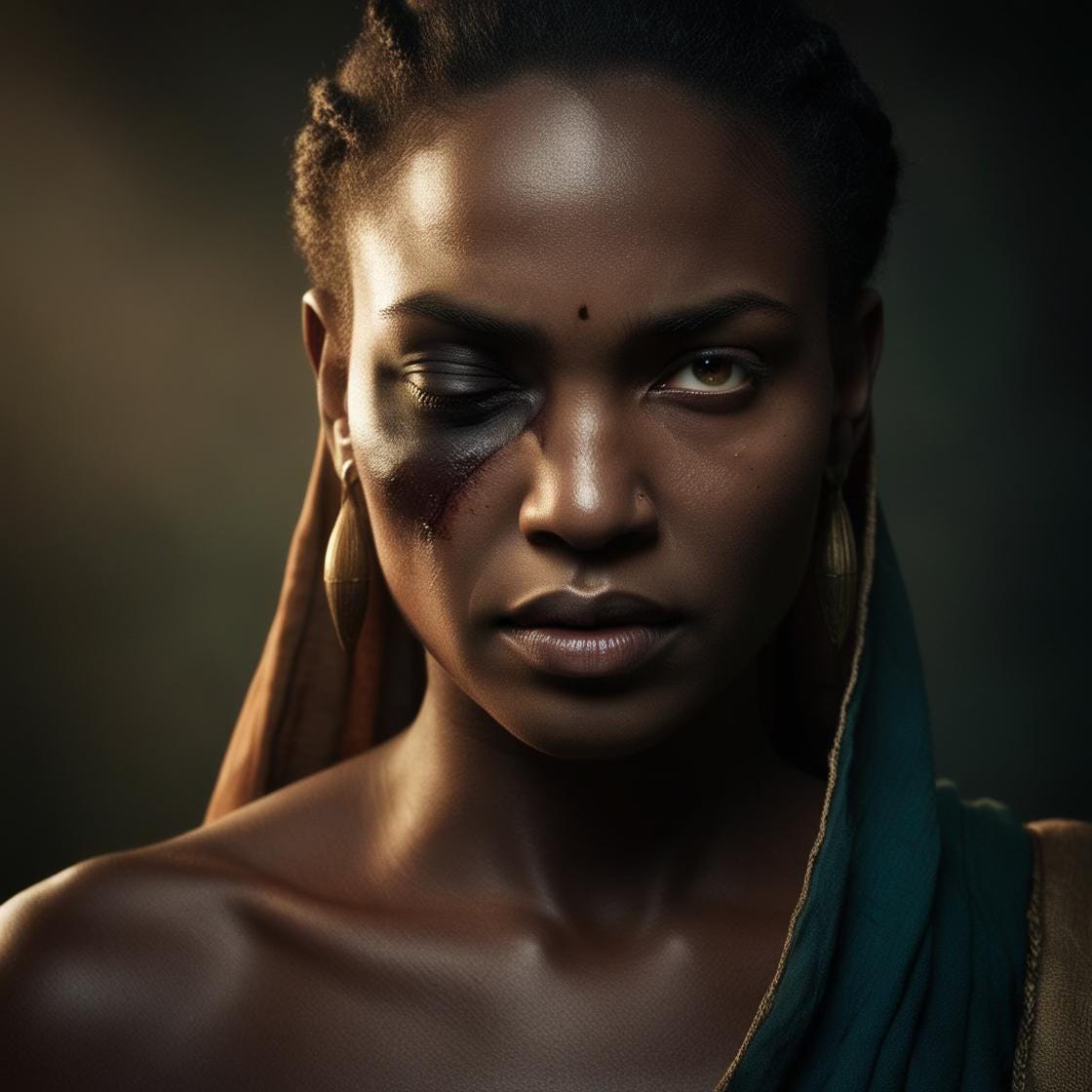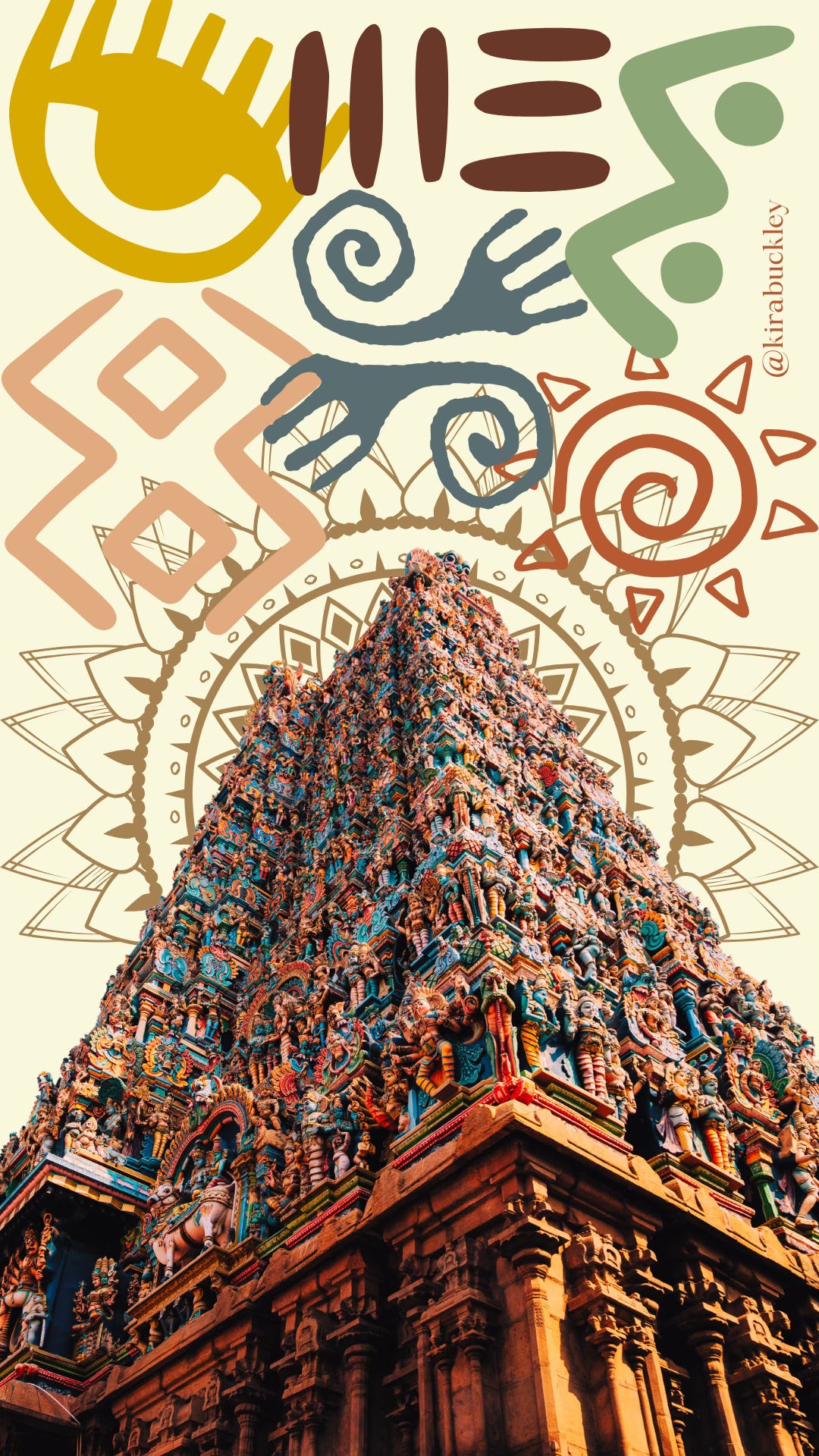
We begin again. Not as new, but as remembered.
The echoes of the past call to us, not as whispers, but as mighty roars. Across the ages, there are women whose names were forgotten by time, but whose spirits refuse to fade. They were queens, warriors, and healers—forces whose lives shaped nations, who built empires, and who wielded power not as a gift, but as a birthright. Their names were Nzinga, Amanirenas, and Makeda.
As I sit to write, I feel their presence stirring within me. They are not just figures from history; they are the blood coursing through my veins, the fire that burns in my heart, the very breath that fills my lungs. These women are with me, and they are with you.
Nzinga: The Alchemist of Power
There was a time when Nzinga, queen of the Ndongo Kingdom in Angola, stood before the Portuguese invaders who sought to undermine her people. They denied her a seat at their council table, so Nzinga, ever the strategist, took her own. She lowered herself onto the back of a servant, creating her own throne, a quiet yet profound declaration: she would never beg for space. Her power was never to be negotiated—it was hers, by right.
Say this with me,
“I invoke Nzinga’s spirit as I claim my place at the table—as a… {fill in your position, identity, desire, essence}. No longer waiting for permission to be seen, to be heard, to be honored.
✨ Sacred Inquiry: Invoke Nzinga and ask yourself:
Where have I been waiting for permission to take up space?
What power have I been outsourcing that is already mine to claim?
Complete this declaration: No longer will I _______. Instead, I will _______.
Amanirenas: The Wounded Warrior Who Refused to Surrender
Amanirenas, the warrior queen of Kush, rode into battle against the mighty Roman Empire. In the heat of war, she lost an eye—but not her vision. Her courage and determination never wavered. Though the world may have seen her wounds, she saw them as marks of honor—proof of her unyielding devotion to her people.
Amanirenas’ story teaches me that wounds do not define us—they initiate us. Every scar, every loss, every tear, is a step toward who we are becoming. The pain we endure becomes the wisdom we carry. As I write, I carry my own scars—the battles fought within and without. I step into this season of creation, not as someone free from hurt, but as one who has been shaped and strengthened by it.
✨ Sacred Inquiry: Invoke Amanirenas and ask yourself:
What personal battle has shaped my becoming?
What sacred scar do I carry, and how does it hold wisdom?
Complete this declaration: No longer will I hide my wounds. Instead, I will _______.
Makeda: The Wisdom-Keeper and Initiatrix
Makeda, the Queen of Sheba, journeyed far to meet King Solomon. She was not seeking validation or approval. She came as a sovereign in her own right, fully aware of her wisdom and her worth. Makeda’s strength lay in her deep understanding of balance—between knowledge and experience, between the seen and the unseen, between the sacred and the mundane. She embodied the Divine Feminine, holding both sensuality and wisdom with grace.
Makeda reminds me that the power of storytelling is not just in telling the stories of others—it is in embodying them. I am a bridge between the past and the present, the physical and the spiritual. I honor the wisdom that flows through me, knowing that it is already whole, already complete.
✨ Sacred Inquiry: Invoke Makeda and ask yourself:
Where have I doubted my own wisdom?
How can I honor the sacred balance between knowledge and embodied experience?
Complete this declaration: No longer will I seek validation outside myself. Instead, I will _______.
Writing as Sacred Remembrance
I am rebirthing my digital writing space as a temple of remembrance. A portal where ancestral wisdom breathes through words. A space where myth, medicine, history, and ceremony converge.
Through my writing, I am calling us back. Back to the body. Back to the root. Back to the divine inheritance that has always been ours.
This is an initiation—not just for me, but for anyone who feels the stirrings of something ancient awakening within them. Perhaps provoked by the current cultural or political climate; or maybe just feeling roused by Black History Month. Whatever the catalyst, use it. Don’t be passive and fall victim to your old patterns of just hoarding feelings, blaming, and complaining. Use your power like you use the actions of others to validate your existence or wellbeing! Either way, you’re still manifesting. *shrugs*.
I invite you to walk with me in this remembering. To read, to listen, to witness, to reclaim.
Nzinga. Amanirenas. Makeda.
"While on others thou art calling….” Will you answer the call?
Subscribe. Stay close. We are only just beginning. Again.
“I Shall Not Freelance My Birthright" radiates a fierce, unapologetic energy that asserts complete ownership of one’s inherent power and legacy. It speaks to a refusal to dilute or commodify what is sacred and intrinsic. It conveys: A Bold Reclamation: a declaration of taking back what is rightfully yours—your heritage, power, and identity—without compromise or delegation. Defiance of Commodity Culture: The title critiques the modern tendency to outsource even our most fundamental aspects, reminding us that our legacy isn’t something to be bartered or rented out. Empowerment and Sovereignty: It exudes strength and self-determination, suggesting that your birthright (whether that means ancestral wisdom, creative authority, or personal power) is non-negotiable and must be honored. Mystical & Ancestral Vibe: There’s an almost mythic quality to the phrase, hinting at deep, spiritual roots and the sacred nature of what you claim—fitting perfectly for a space that merges ancestral narratives with modern reclamation.
"Kith and kin" is an idiom that traditionally refers to one's friends, acquaintances, and family—essentially, all the people who make up your community and support network. While "kin" specifically means blood relatives or family, "kith" encompasses those close connections and friendships that feel like family. Together, the phrase celebrates the bonds that tie us to our heritage, community, and shared history.






